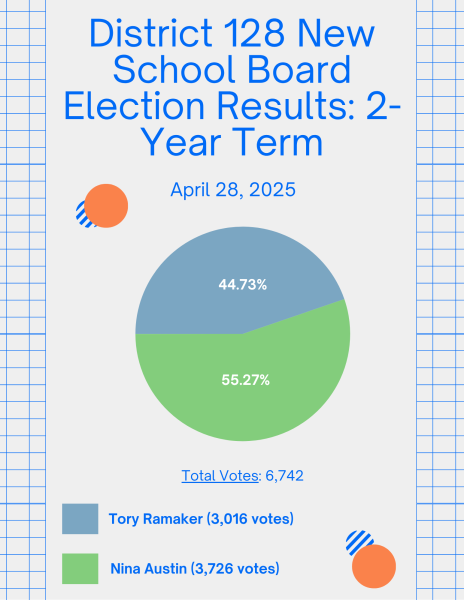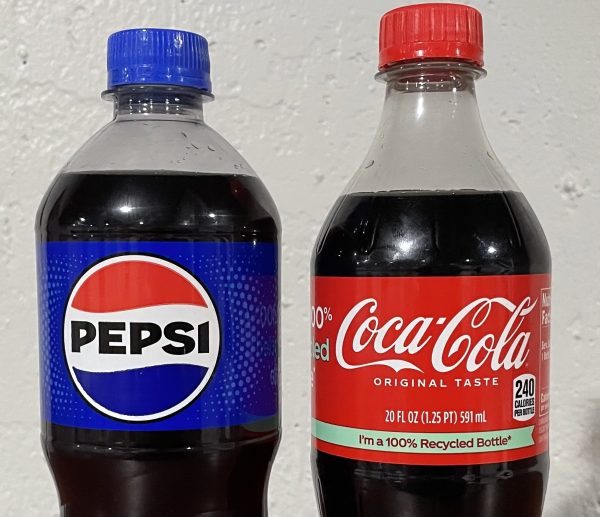FDA to crack down on teen nicotine addiction with new agenda
Jonathan Philip Winickoff, M.D., assistant professor of pediatrics at Harvard Medical School, has reported that the younger someone is, the more quickly they can get addicted to nicotine which is found in e-cigarettes. The regulation of reward centers in the brain are altered to be nicotine-hungry when the drug is used, serving as a detrimental side effect that potentiates addiction to other substances. Note: the person featured in this image is both 18 years of age and is not a student at Libertyville High School.
On Sept. 12, the Food and Drug Administration (FDA) commissioner Dr. Scott Gottlieb, via the agency’s website, gave an official statement addressing the FDA’s concern about the widespread epidemic of teen nicotine usage and the FDA’s new plan to curb the problem.
Gottlieb claimed that the epidemic of e-cigarettes was worse than the FDA was prepared to deal with using their previous initiative, which consisted of “weak” warning letters sent to manufacturers, and he said the organization now plans to put forth greater effort to combat the issue.
“[The FDA] didn’t foresee the extent of what’s now become one of our biggest challenges…We’re announcing the largest ever coordinated initiative against violative sales in the history of the FDA,” Gottlieb said in the statement. “It’s aimed at retail and online sales of e-cigarettes to minors.”
The agency has sent more than 1,100 warning letters to stores selling these products illegally to minors, and they’ve issued another 131 civil money penalties to stores that continued to violate the restrictions that the FDA had put forth. The effectiveness of these letters and penalties is not yet known, as this action was recent.
The FDA is especially wary of the flavored products that companies are selling to users, unsure of how such e-cigarette products would be able to help adults who are trying to curb their smoking addiction, which was the intended purpose of the devices upon their invention.
“One factor we’re closely evaluating is the availability of characterizing flavors. We know that the flavors play an important role in driving the youth appeal,” Gottlieb wrote. “We’re now actively evaluating how we’d implement such a policy.”
Gottlieb and the agency are hesitant to initiate a plan to limit the marketing of flavored products, as they believe that the epidemic is already widespread across the nation, and they would like to focus their efforts on eliminating the underlying problem of nicotine addiction that the use of e-cigarettes causes.
“It starts with the steps that we’re taking today, with the announcement of the largest coordinated tobacco compliance effort in FDA’s history,” Gottlieb said. “Let me be clear: Everything is on the table. This includes the resources of our civil and criminal enforcement tools.”
The FDA also sent notices to five e-cigarette manufacturers whose products were sold to kids — JUUL, Vuse, MarkTen, blu e-cigs, and Logic — stating that their products are being misused and that they are the focus of the FDA’s attention.
In addition, the agency is requiring that the manufacturers of these products create robust plans on how they will actually address the problem of minors’ ability to get their hands on the products that these companies provide.
In addition, Gottlieb challenged these companies and others to be creative and bold in their practices to limit the use of e-cigarettes by minors. If this initiative goes well with the five major companies, the FDA plans on enforcing it for all e-cigarette manufacturers and distributors.
In regards to Libertyville High School, Mr. Dusan Racic, the School Resource Officer, reported, through an email interview, that the amount of incidents of e-cigarette usage at school is low this year compared to other years. According to the school’s Illinois Youth Survey data from February, approximately 30 percent of students used e-cigarettes within the past 30 days at the time the survey was taken.
While the school does punish students found using e-cigarette devices with suspension, the administration also seeks to help support those suffering from nicotine addiction. Mr. Racic stated that the school has also begun to make presentations to the freshmen during Link Crew on the dangers (both physically and legally) of vaping and using e-cigarettes.
Mr. Racic explained that the combination of students’ fear of punishment and the school’s efforts to educate its students on the issue are the main reasons for the recent improvement, and he hopes that the continuation of these efforts will further reduce the problem of e-cigarettes in our community.
Mr. Racic also expressed his opinion of how effective the FDA’s new plans will be: “While we can limit these companies in their marketing strategies, it would be difficult to stop it all together. Education is the best way…both at home and in our schools. Knowledge is power and we need to [empower]/educate our youth to make the best decisions for themselves.”





![Mr. Abullh Ali, manager/assistant, helps open Queen Yemeni Coffee in downtown Libertyville at 606 North Milwaukee Ave. With the help of employees such as manager and LHS senior Yousef Taha, they are able to bring the Yemeni and Ethiopian culture to Libertyville by using their Queen spices, cinnamon and cardamom in their drinks such as Adani Chai, which is inspired by Sheda, the Queen of Yemen and Ethiopia. “The history of our coffee [is] a long history and we believe that Yemen and Ethiopia started the coffee and we are bringing something unique to the community,” Mr. Ali said.](https://www.lhsdoi.com/wp-content/uploads/2025/04/Photo-1-600x400.jpg)






